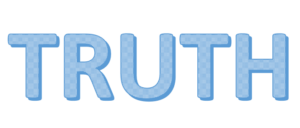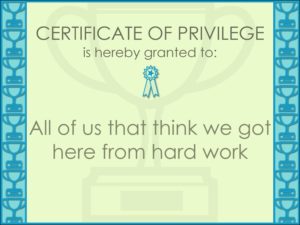Archive for September, 2016
Your Truth at Work
 Making good decisions about our words and actions is part of having – and keeping – a job.
Making good decisions about our words and actions is part of having – and keeping – a job.
Whether working with customers, coworkers or employers, there’s a certain amount of self-editing that is required to get along with people and sufficiently meet the expectations of the people that pay you.
Choosing to not say exactly what you’re thinking is a good decision much of the time. Spewing unfiltered frustration damages relationships and your reputation.
At the other end of the spectrum, censoring yourself too much isn’t constructive either. Constantly saying what your manager wants to hear, when it isn’t what you believe, is exhausting. Going along with unethical decisions out of fear probably won’t erase your fear – but will add feelings of guilt. Holding back when you have an opportunity to contribute deprives both you and your organization of your ability to make an impact.
Modifying your behavior at work to the extent that you aren’t being true to yourself isn’t healthy. It’s stressful and depressing.
In some workplaces, there may be room for adjustment. Maybe you can say what’s important to you by approaching the topic in a way that reduces the risk of upsetting the people you work with. Dale Carnegie’s How to Win Friends and Influence People has great tips for situations like this. Taking a Dale Carnegie class is even better because you get to practice these skills.
If attempting to influence the organization doesn’t work and you’re currently not able to get a different job, you still have control over something: your truth. You might need to smile and nod for self-preservation, but you can acknowledge to yourself what you see, hear, and believe. Don’t let them steal your truth.
We Didn’t Get Here From Hard Work Alone
 It’s easy to attribute hard work to any kind of career success we have.
It’s easy to attribute hard work to any kind of career success we have.
“I worked hard in high school; that’s why I got into this prestigious university.”
“I worked hard in college; that’s why I was hired at this great job.”
“I worked hard on this project; that’s why I got a promotion.”
OK, so we did our homework and studied for tests. We carefully completed the applications and were scrupulous with our resumes. We figured out what our managers wanted and delivered it.
It was hard work.
But.
That hard work is often the effort used to capitalize on our fortunate circumstances. We can convince ourselves that we deserve our success, that we earned it, because we put a lot of time and focus into achieving it.
Hard work is honorable. Working towards a career goal is admirable.
Yet.
Hard work alone did not earn us our achievements.
Someone read and accepted our college application. Someone permitted us to interview for the job and someone made the decision to hire us. Someone favored us with the promotion or raise or award.
Someone decided we were qualified, acceptable, and perhaps more worthy than others aspiring to the same position.
Because they are human, those someones have their own ways of evaluating us. Their experiences and their environment influence their perspectives. They may be aware of their ingrained biases and work to overcome them. Or they may unaware of unconscious biases, or disbelieve that they exist.
Unconscious bias does exist.
Overt bias also exists in plenty of people who believe certain people are inferior, threatening, or sinful.
If we are a combination of any of these factors, we have benefited from other people’s biases regardless of whether it was intentional:
· White
· Heterosexual and cis
· Male
· Tall (unless you’re a jockey)
· Body and face considered normal and attractive by societal standards
· Attended decent primary and secondary schools
· Wealthy parents
If we have some of these characteristics – and I do – we have benefited from them.
If we don’t admit our undeserved advantages, we get to believe we earned our slot by working hard. We also get to believe that other people should work harder if they want what we have and it’s their own fault if they don’t. We can then support this line of thinking by pointing to people who achieved great success despite the odds.
It’s very American to hail the underdog achievers and the rags-to-riches stories. However, these examples stand out precisely because they are not the norm.
When we’re surrounded by other privileged people and the exceptional outliers, it’s easy to assume everyone else’s lack of success is due to a lack of effort. We might even believe that if our advantages had been stripped away, we would still be accomplished.
Believing it doesn’t mean it’s true.
I acknowledge my privilege and the role it plays in my education and career opportunities.

Recent Comments